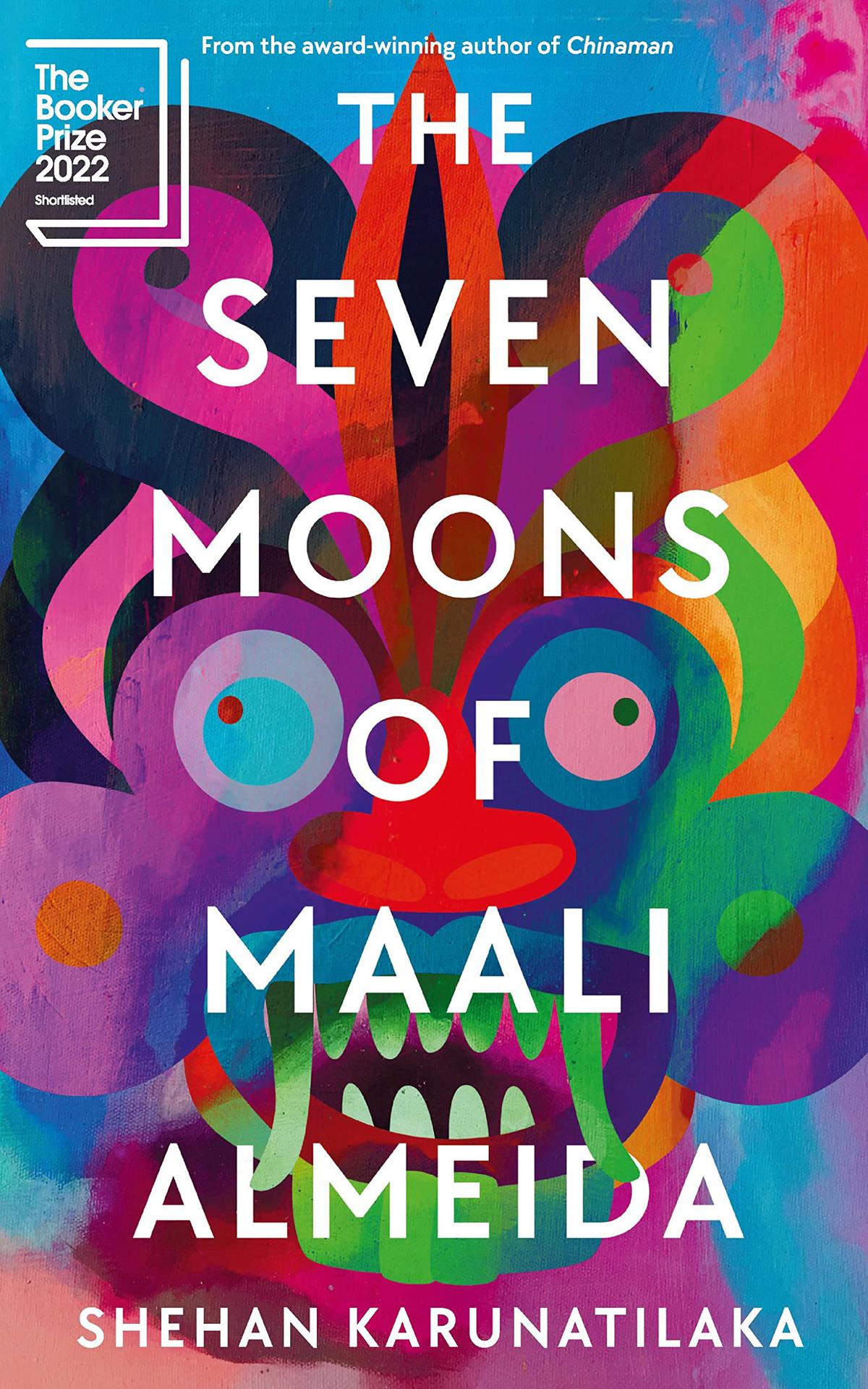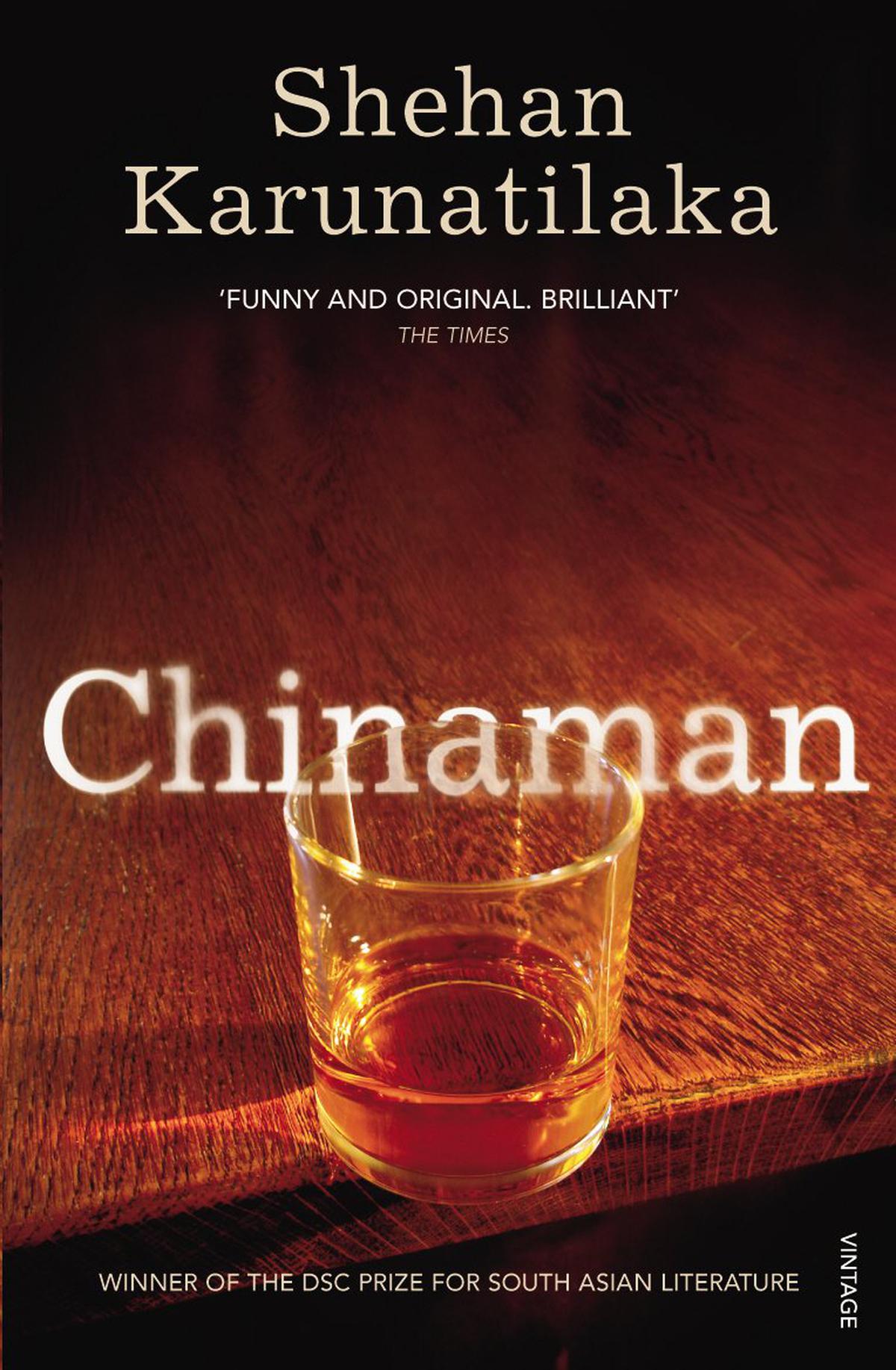book by shehan karunatilaka, The Seven Moons of Mali AlmeidaShortlisted for 2022 Booker, originally published in India chat with the dead In 2020. , Photo Credit: Special Arrangement
Sri Lankan author Shehan Karunathilaka became a star a decade ago with her brilliant cricket-themed debut novel, Chinaman: The Legend of Pradeep Mathew, which won him some top awards. his latest, The Seven Moons of Mali AlmeidaShortlisted for 2022 Booker Prize, originally published in India chat with the dead In 2020. The 47-year-old juggles writing alongside an advertising career and music as a hobby. They say both are necessary and help fuel their creativity in different ways. Edited excerpts from the interview:

Did you squeal with joy when you heard the Booker news after the hard work of the past few months?
It’s been a tough few years. I lost whatever faith I had left in this country after easter attacks of 2019, Since then, the decline has been steady and then sudden.
At the time, I was editing and revising this novel which had been on my mind for 10 years but was struggling to find an international publisher.
I was going to school with my five year old child, my wife was sitting in the petrol queue when I got the news. Couldn’t really shout, but celebrated with a bag of cashews and a box of toddy.
how different The Seven Moons of Mali Almeida From chat with the dead,
The book was revised for an international audience during the pandemic. So as not to confuse the details of Sri Lanka in 1989 and the complexity of life thereafter. even though it’s the same book Moon more accessible to audiences unfamiliar with Sri Lankan politics and folklore.
How did you get the idea to write a whodunnit about the dead and their ghosts?
This was what I remember as the worst time in the history of Sri Lanka. A civil war, a Marxist insurgency, an Indian Army, State Counter Terror Squads. It was a time of disappearances and unidentified bodies. I thought a ghost story would be an interesting way to understand this trauma and the many traumas that unfolded.
Demonstrators clash with police during anti-government protests at the height of Sri Lanka’s economic crisis in Colombo, August 2022. Photo Credit: Reuters
Any tacit message in creating the central character – the war photographer who is gay, nihilistic and an atheist?
Mali evolved into several drafts. He started out as a version of Richard de Zoysa, who was a journalist, activist and bisexual, and was killed by the state in 1990. But each draft gave Mali a new dimension and worldview. Being a war photographer and witnessing the carnage made it difficult for him to believe in God or cosmic order. So he took refuge in secret sex and games of chance.
Character isn’t about conveying, it’s more about what feels authentic and comes alive on the page. Whatever, Mali Almeida, like Pradeep Mathew SugarDemonstrates that the most interesting characters live on the fringes of history.
You told the story through Malinda, inventing a life that’s morbid and funny. Have you given an effective voice to Sri Lanka’s dead?
None of this is easy, although it can be fun. Life as a messy bureaucracy presided over by an absentee god was a tempting idea. Chatting with the Sri Lankan Dead was challenging because interviewing real ghosts is difficult. Although I hope that each soul had its own voice and justified its place in the plot.

Your early experiences with publishers were disappointing, leading you to self-publish Sugar, Is it better now?
I hope it is done. when i wrote SugarThere was no clear way for Sri Lankan writers to enter for the Gratian Prize other than self-publishing with the prize money.
There are many stories to tell about Sri Lanka’s present and its past, and many talented writers to tell them. But publishing internationally is always a challenge, although it seems more doors are opening for writers from the subcontinent. I have also seen young writers like Yudhanjaya Wijeratne bypassing the traditional model to reach a global audience directly with their dystopian stories.
title of your children please don’t put it in your mouth A charming picture book. Will there be more?
This is what children call side hustle. Me and my brother Lalit write and design books for children. Our average is one every year but we are trying to double the production.
I am currently working on a third Baby Baba book about sleep and a story for older children about insects.
Have you modeled yourself on any of your literary heroes?
My early heroes were Agatha Christie, Stephen King, Ira Levin, and Neil Gaiman; The current protagonists are Margaret Atwood, George Saunders, Cormac McCarthy and David Mitchell. The people I try to write like are Kurt Vonnegut and William Goldman.
Though a subcontinental writer, there is no dearth of literary role models such as Rushdie, Ondaatje, Gunasekara, Hanif, Jeet, Kamila, Mohsin, Jhumpa and Naqvi. Not sure how to model, but I guess reading them is education enough.
Your thoughts on contemporary Anglophone literature in Sri Lanka?
If the country is cursed, at least its storytellers are blessed with an abundance of material. Today, there are strong voices in literary genres as well as in film, theater and social media. I hope more writing from Sri Lanka – Anglophone, Sinhalese or Tamil – finds publishers and readers, because it has much to tell and much to learn.
Given the many new stories, another novel set in Sri Lanka?
I think all the stories will be set in Sri Lanka until I find another place that is equally absurd and exotic. I have a third novel in the works, and some children’s books to finish. If I can trick someone into commissioning it, I can do a screenplay.
The interviewer is a freelance journalist and writer based in Bengaluru.